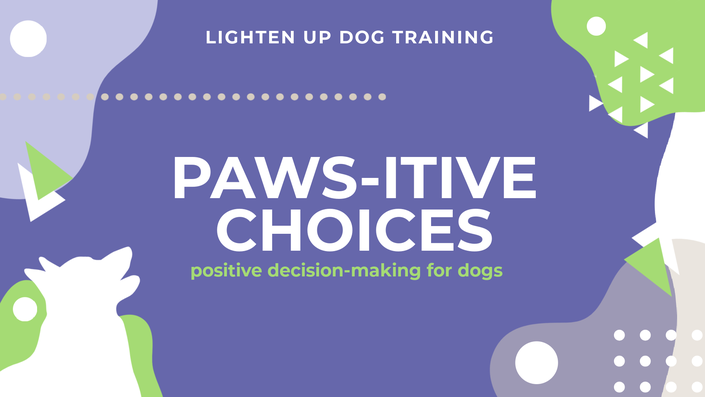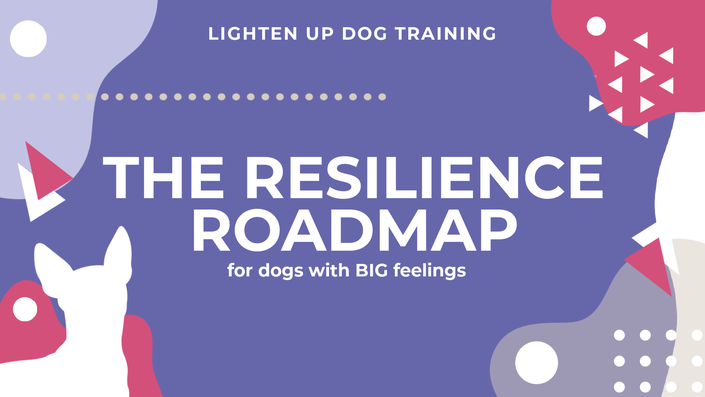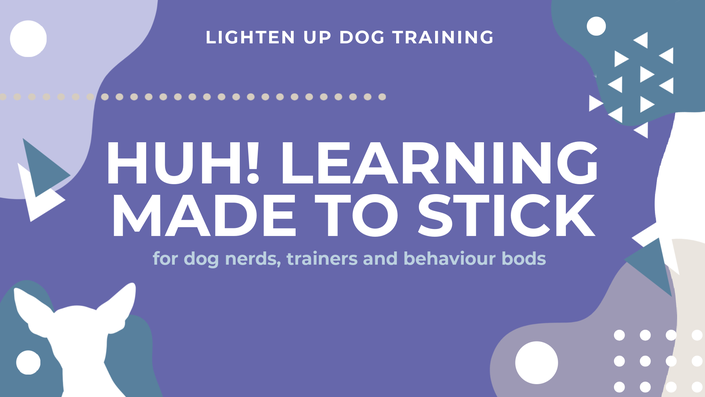THIS COURSE IS CURRENTLY CLOSED
FOR ENROLMENT
Truly the first of its kind: over 60 hours of video recordings, case studies, papers, discussion and live sessions.
Enrolment will re-open on Monday 04 August 2025 and the course will go live on Monday 01 September 2025.
If you'd like to register your interest and receive an email when the course opens for registrations in August 2025, hit the button below and add your details.
No need to make a note in your diary - I'll let you know when we go live!

ABOUT THE COURSE
So many maladaptive behaviours are complicated by frustration:
- reactivity on the lead
- owner-directed aggression
- separation-related behaviour
- resource guarding
- compulsive behaviours
- aggression between dogs in the home
- poor performance on the field
- difficulties with reward delay
- difficulties with duration behaviours
- barking
- pulling on the lead
Without a full understanding of what frustration is, even the simplest of training exercises can worsen behaviour significantly. Knowing where frustration occurs is fundamental before we work with dogs.
Yet so often, it's treated as nothing more than a poor cousin to other emotions, lumped in with fear and anxiety or even excitement and arousal.
This unique 12-week couse will help you understand the ethology, neurobiology, body language, development and function of frustration. It's everything you could ever need - and then some!
With case studies and practical support alongside a dedicated community and discussion group, you'll have lifetime access to all the materials and approaches you need.

Emotional & Behavioural Issues
When dogs struggle to cope with frustration, we can expect two common side-effects. The first is aggression. The second is a lack of resilience.
Learning how to cope with frustration is a core skill for many dogs who struggle to cope with the world. Despite its importance, it is rarely explored on dog training courses.

Training issues
Frustration also affects the work we can do with dogs. When there is a delay, when there are degrees of uncertainty or when there are downshifts in rewards, many dogs can struggle to move past their frustration.
Understanding frustration is especially relevant for trainers working with +R or differential reinforcement procedures.

Social issues
Dogs who struggle with frustration often have poor relationships with their guardian and with other dogs. They can struggle with grooming, handling and vet care just as they struggle when asked to relinquish items or to complete requests. Equally, they can have poor relationships with other dogs, never paying attention to the other dog's communication until a fight breaks out.
WHY FRUSTRATION MATTERS
So much of our success with dogs depends on whether we have really got to grips with frustration or not. Without it, our plans for separation-related behaviour, reactive behaviour on the lead or even dog fights between cohabiting dogs can be completely derailed.
Worse, if we don't understand how the dogs we work with are affected by frustration in training, then our work with assistance activities, detection or search and rescue, then we're likely to have a high failure rate. Frustration tolerance matters in all spheres, from agility to gundog work and herding. Frustration can even intensify aggression and cause dangerous scenarios in some cases.
If you're still expecting this mystical 'calm' from working-line dogs or anxious dogs, and all your success depends on getting it, you may not be getting anywhere with your clients. This can be frustrating and lead to a high drop-out rate.
Lots of courses pay lip service to frustration. They never truly address what causes it, how we can avoid it, how we can future-proof our pups and how we can build up our dogs' capacity to cope with frustration or even work through it in scentwork, mantrailing and trial sports. This is of particular relevance to working dogs or dogs living highly confined Westernised lives.
ABOUT ME
Having spent six years as a trustee in a large open-access shelter in France, I'm well-versed in the ways in which frustration can manifest: it is often the reason for surrender and compounded by kennelling in stressful environments. Frustration contributes hugely to shelter life.
Not only is it a significant factor for dogs who come into care, but also in their life beyond the shelter once adopted.
Now I work as part of a larger network across Europe, supporting guardians, associations and shelters. My own caseload is almost exclusively with dogs who have a bite history, whatever their background.
I qualified to teach in 1995 following a BA (Hons) and I'm also a certified behaviour consultant (CSB-D IAABC). I'm guardian to Lidy, a malinois who spent many years in the shelter.
It's my aim to make learning irresistible for all learners in my life. Let's keep laborious out of learning!

Course Sessions
- Module 01 Introduction (6:11)
- What Frustration Is (17:03)
- The Function of Frustration (18:43)
- The Contexts where Frustration Matters (21:38)
- The body language of frustration (18:37)
- The neurobiology of frustration (24:09)
- The Development of Frustration from puppyhood to adolescence (29:00)
- The ethics of training and support (18:36)
- Emotion regulation (24:07)
- Plenary and key actions
- Module 02 Introduction (8:13)
- Frustration and Traits (32:16)
- Frustration and Training (47:24)
- Frustration and Canine Relationships (55:21)
- Frustration and Human Relationships (34:07)
- Frustration and Separation (48:53)
- Frustration and Aggression (53:04)
- Frustration and Reactivity (58:43)
- Frustration, Control and Autonomy (60:22)
- Frustration and Enrichment (49:49)
- Frustration and Repetitive Behaviour (42:24)
- Frustration, predation and pseudo-predation (106:05)
- Assessing frustration and its impact (51:35)
- Plenary and key actions (9:45)
- Module 03 Introduction (23:17)
- Frustration and Positive Reinforcement (57:39)
- Frustration and Negative Punishment (50:48)
- Delay (32:45)
- Duration behaviours (44:09)
- Disappointment and downshifting (23:10)
- Operant Extinction (53:09)
- Schedules of reinforcement (45:11)
- Motivating operations (42:57)
- Shaping, luring, capturing and cuing (41:35)
- Frustration and stimulus gradients (57:51)
- Termination of enjoyable activities (33:39)
- Module plenary (17:58)
- Module 04 Introduction (23:15)
- Client frustrations (88:06)
- How client frustrations fuel the use of aversive methods and tools (40:38)
- Coping with Client Frustrations (54:59)
- Coaching the frustrated client (85:12)
- Helping Clients Understand Their Dogs (41:31)
- Case Study 1: frustration in separation (60:48)
- Case Study 2: frustration in multidog aggression (54:00)
- Case Study 3: frustration and social needs (66:25)
- Module plenary (4:47)
- Module 05 Introduction (26:27)
- Pre-natal stress (28:42)
- Neonatal development (79:25)
- Weaning & transition to mobility (58:37)
- Object permanence, separation and stranger danger (83:47)
- Frustration overspill and dysregulation in puppies (80:12)
- Puppy Biting (63:00)
- The Use of Time Outs (71:19)
- Building the robust and resilient puppy (41:36)
- Supporting the 'High Drive' puppy (84:50)
- Adolescence in dogs (43:22)
- Reducing frustration when transitioning between activities and when the fun ends (59:30)
- Module plenary (13:44)
- Module 06 Introduction (30:58)
- Frustration and loose lead walking (97:21)
- Object play manners (72:45)
- Food manners for adult grabbers and snatchers (30:47)
- Interactive physical play (33:30)
- Conspecific play (73:23)
- Restorative socialisation (144:58)
- Alert & Alarm Barking (66:47)
- Chasing and Predation
- Loss of autonomy: Street and Village Dog Rescues (85:20)
- Frustration-related problems with control, consent, self and choice (99:19)
- Module plenary (66:02)




